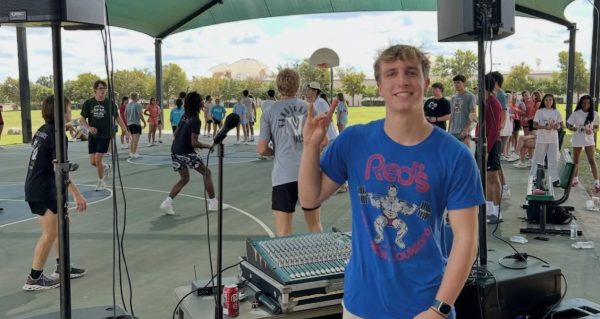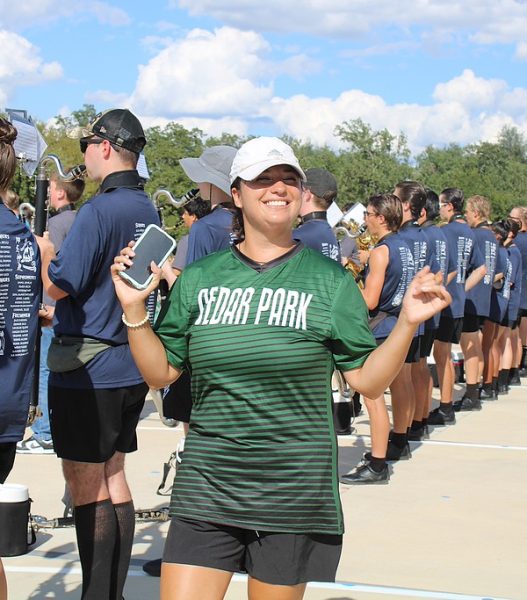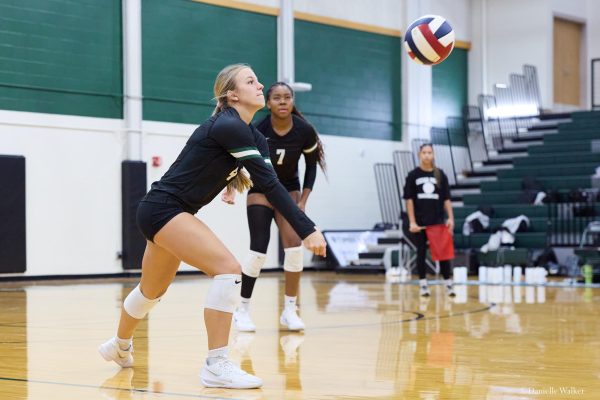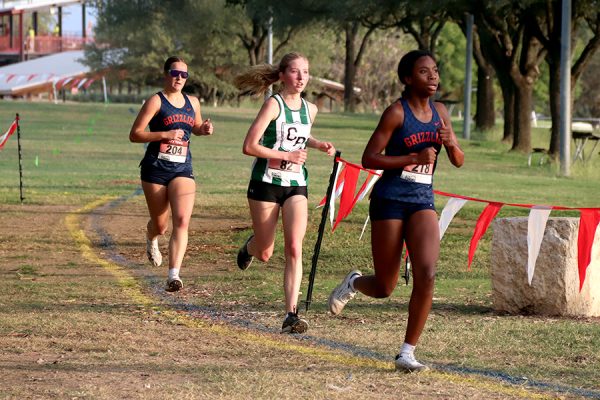Say Yes to the Stress
Student Anxiety Can Cause Success
As students battle deadlines, major assessments and changing trends, anxiety takes control of the brain. Since 1936, when endocrinologist Hans Selye studied an organism’s ability to adapt, the term eustress has been used in psychology to describe “good” stress. “I view stress as both good and bad,” counselor James Sullivan said. “Good stress is often short term that can be used to motivate you, like the stress, or excitement, you feel before playing a sporting game, preparing for a test, or before going on a first date. Bad stress is usually long term and wears you out. Over long times it can lead to anxiety.”
October 19, 2022
As students battle deadlines, major assessments and changing trends, anxiety takes control of the brain. Yet, even during these times, as the pulses quickens and hormones surge, there’s no threat or fear. Instead, stress takes the form of excitement.
The physical, mental or emotional response to a situation or event, stress, is a constant in the lives of many high school students. While some see this as a bad thing, stress can be a beneficial part of a person’s daily routine. According to Stress.org, since 1936, when endocrinologist Hans Selye studied an organism’s ability to adapt, the term eustress has been used in psychology to describe “good” stress.
“I view stress as both good and bad,” high school counselor James Sullivan said. “Good stress is often short term that can be used to motivate you, like the stress, or excitement, you feel before playing a sporting game, preparing for a test or before going on a first date. Bad stress is usually long term and wears you out. Over long times, it can lead to anxiety.”
Stress is more than just the rush of energy or anxiety a person feels before an impactful event. In fact, it can save lives, according to Carrie Curnutt, a licensed specialist in school psychology.
“Stress is also a form of self-preservation,” Curnutt said. “It may keep us safe when presented with ‘risky’ situations such as walking somewhere alone at night, choosing not to get in a car with a friend who has been drinking or locking the doors at your house when you are home alone.”
Not experiencing enough stress results in students who have a lack of motivation, fail to reach desired goals or who do not exercise enough caution. On the other hand, a student under the consistent feelings of apprehension and worry that are not necessarily connected to a specific situation are likely to be experiencing too much stress.
“Stress is unique to each person; what one student finds stressful another student may not,” Curnutt said. “Students demonstrate the most stress in regard to status or identity roles, extracurricular activities, school performance, social relationships and preparing for post-secondary plans such as college, work or the military. The COVID pandemic was a unique and unprecedented circumstance that appears to have stressed adolescents in a variety of ways that we are continuing to discover.”
Stress can serve as motivation to study for a test, meet goals and help a person reach set deadlines.
“When I’m more stressed, I study more for a test so I don’t do badly on it,” sophomore Roy Ferguson said. “One time, I had this project in quest that I was freaking out over. I was super stressed, so I tried really hard on it and [because I tried hard] I was successful and got a 100.”
As the brain grows with the rest of the human body, stress has an impact, according to Curnutt. Adolescence describes the time of brain maturation and the continued development of neural pathways for brain functioning. As a student learns to cope with stress, they can develop skills that are highly beneficial towards their brain growth but bad stress can do the opposite.
“Appropriately handling stress can lead to the development of neural pathways for a variety of functions, such as good coping skills, problem-solving and resilience,” Curnutt said. “Chronic or ‘toxic’ stress can lead to the overproduction of cortisol in the brain, involved in the flight, fight or freeze response, lending to possible overreacting to situations. Additionally, the brain becomes prone to perceive more situations as stressful.”
Students of all grades should keep track of their stress, and whether it is beneficial or detrimental based on how long it lasts, its cause and what its effect on their daily routine is. Contact James Sullivan at james.sullivan@leanderisd.org or Carrie Curnutt at carrie.curnutt@leanderisd.org for more information. Students can also reach out to counseling services about managing their stress by using this check in form.





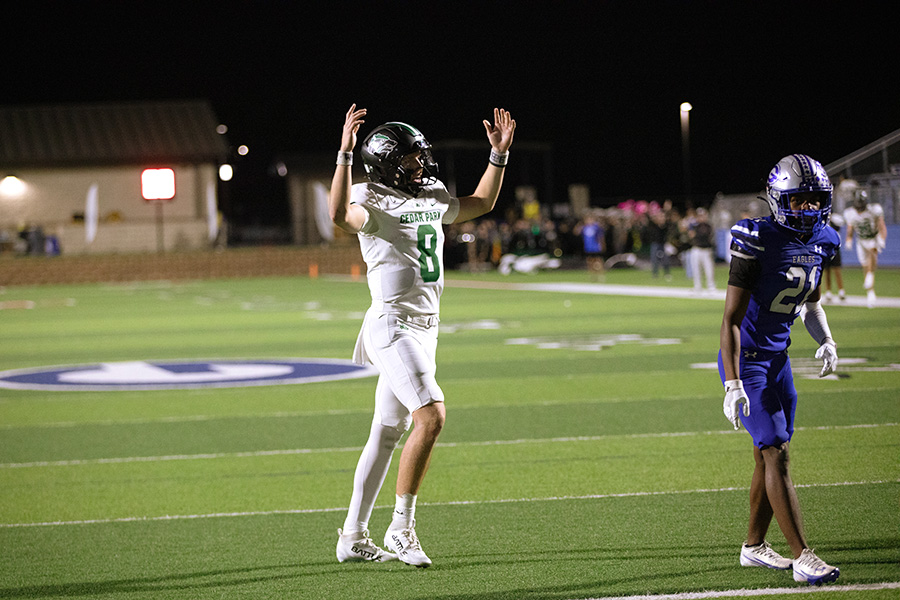
![Senior Jett Mckinney stores all the clothes in his own room, with half of it stored in his closet along with his personal clothes, and the rest taking up space in his room.
“There’s been times [when] there’s so much clothing stored here and it gets overwhelming, so I end up having to sleep somewhere else in the house,” Mckinney said.](https://cphswolfpack.com/wp-content/uploads/2025/11/DSC_0951-1200x800.jpg)



![Broadcast, yearbook and newspaper combined for 66 Interscholastic League Press Conference awards this year. Yearbook won 43, newspaper won 14 and broadcast took home nine. “I think [the ILPC awards] are a great way to give the kids some acknowledgement for all of their hard work,” newspaper and yearbook adviser Paige Hert said. “They typically spend the year covering everyone else’s big moments, so it’s really cool for them to be celebrated so many times and in so many different ways.”](https://cphswolfpack.com/wp-content/uploads/2025/05/edited-ILPC.jpg)




![Looking down at his racket, junior Hasun Nguyen hits the green tennis ball. Hasun has played tennis since he was 9 years old, and he is on the varsity team. "I feel like it’s not really appreciated in America as much, but [tennis] is a really competitive and mentally challenging sport,” Nguyen said. “I’m really level-headed and can keep my cool during a match, and that helps me play a bit better under pressure.” Photo by Kyra Cox](https://cphswolfpack.com/wp-content/uploads/2025/09/hasun.jpg)

![Bringing her arm over her head and taking a quick breath, junior Lauren Lucas swims the final laps of the 500 freestyle at the regionals swimming competition on date. Lucas broke the school’s 18-year-old record for the 500 freestyle at regionals and again at state with a time of 4:58.63. “I’d had my eye on that 500 record since my freshman year, so I was really excited to see if I could get it at regionals or districts,” Lucas said. “ State is always a really fun experience and medaling for the first time was really great. It was a very very tight race, [so] I was a bit surprised [that I medaled]. [There were] a lot of fast girls at the meet in general, [and] it was like a dogfight back and forth, back and forth.” Photo by Kaydence Wilkinson](https://cphswolfpack.com/wp-content/uploads/2025/03/Kaydence-2.7-23-edit-2.jpg)
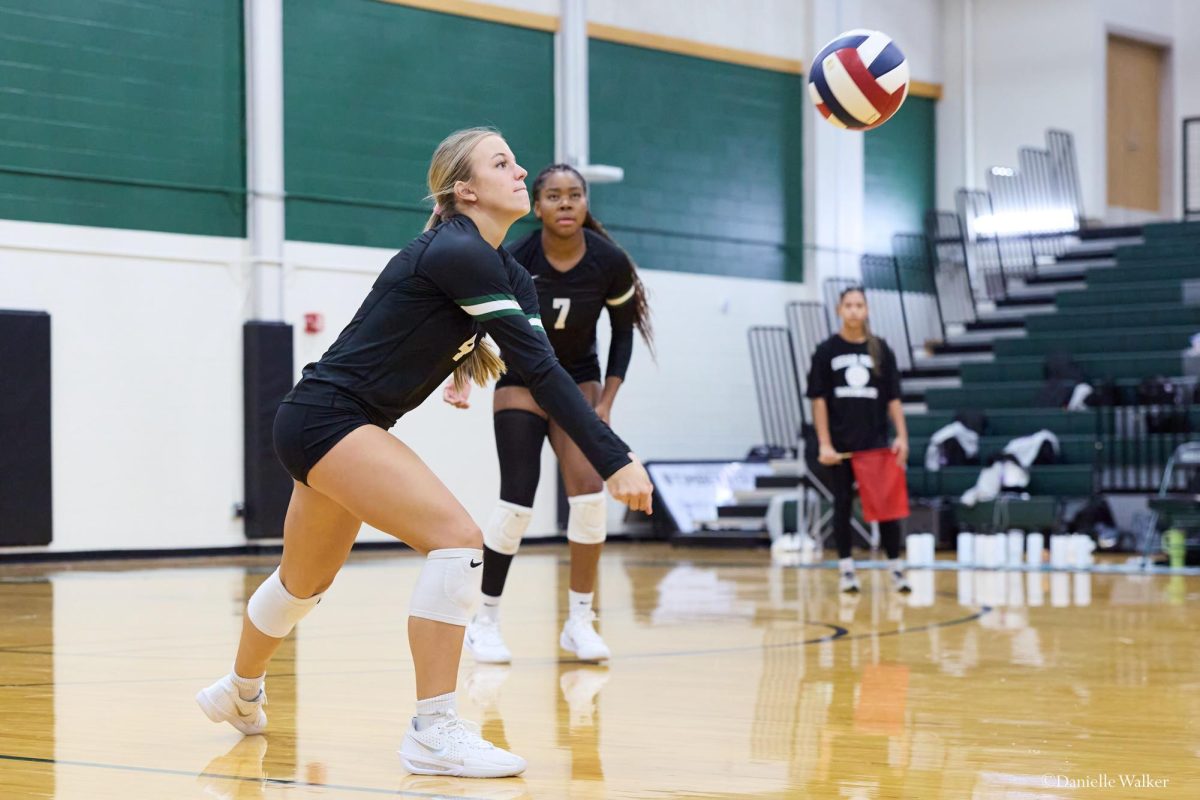

![As her hair blows in the wind, senior Brianna Grandow runs the varsity girls 5K at the cross country district meet last Thursday. Grandow finished fourth in the event and led the varsity girls to regionals with a third place placement as a team. “I’m very excited [to go to regionals],” Grandow said. “I’m excited to race in Corpus Christi, and we get to go to the beach, so that’s really awesome.” Photo by Addison Bruce](https://cphswolfpack.com/wp-content/uploads/2025/10/brianna.jpg)















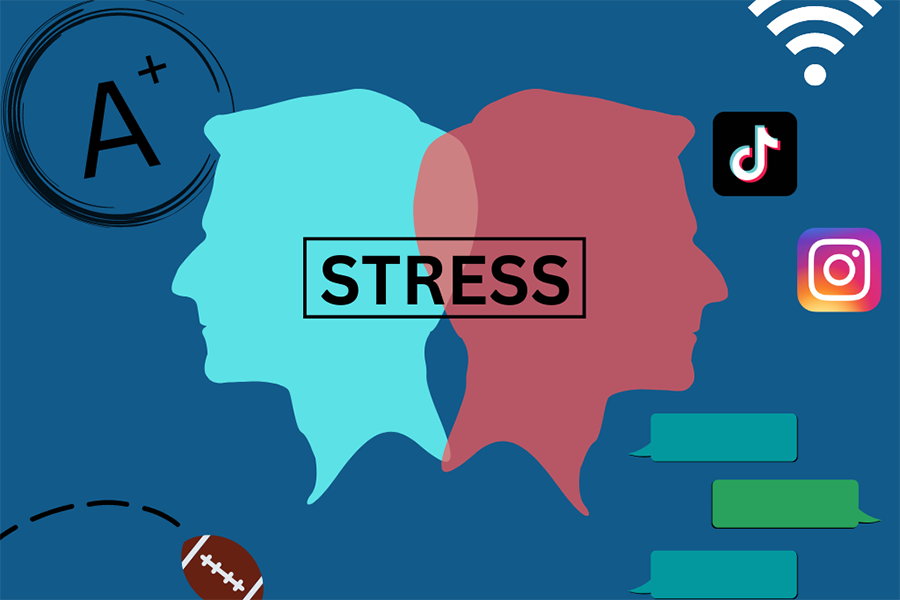

![Holding a microphone, baseball booster club president Chris Cuevas announces the beginning of the annual cornhole tournament. The event has been held for the past two years and is designed to raise money for the baseball program in a fun way. “We’re a baseball team, so people love to compete,” Cuevas said. “So we figured we better do something that gets [their] attention. They want to compete. It’s not a hard sport to do, and we have all different [skill] levels [of participants].” Photo by Henry Mueller](https://cphswolfpack.com/wp-content/uploads/2025/11/Henry-715-1200x900.jpg)


